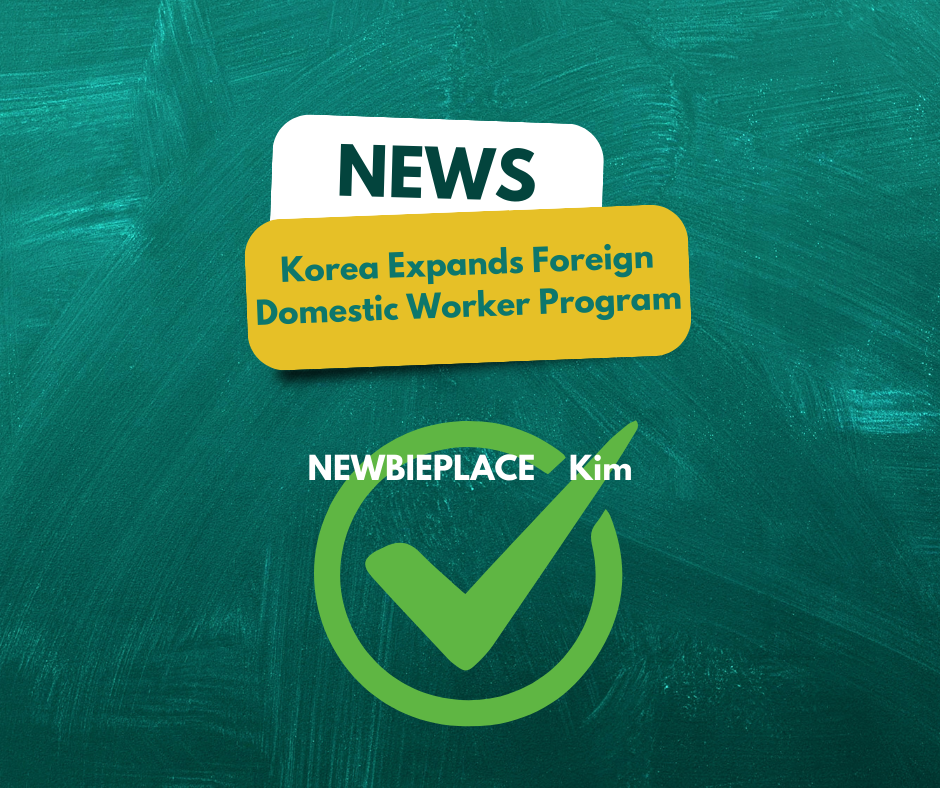The Korean government is expanding jobs for foreign caregivers in Korea through a pilot program and E-7 visa policy to meet growing care needs.
Korea Expands Roles for Foreign Caregivers
The Korean government has launched a new program to hire more foreign caregivers in Korea, aiming to meet rising demand in home and eldercare. This pilot project will allow foreign residents to work in domestic roles such as cleaning, cooking, and childcare. It responds to a growing need for household help due to Korea’s aging population and more dual-income families.
The program is run by the Ministry of Justice, with help from Seoul City. Seoul will manage applications, training, and match workers with homes. The pilot begins in June, with applications opening in March. It will connect 300 homes with foreign domestic workers.
How the New Program Works
This new group of workers is different from those in Seoul’s existing “Filipino caregiver” program. In the older model, caregivers are hired through agencies and protected by labor laws. In the new system, households hire workers directly under private contracts.
Because of this, the new helpers won’t be covered by Korea’s minimum wage or other labor rules. This has raised concerns about fairness. Still, supporters believe it offers families more flexible and affordable care.
Who Can Apply?
To join the program, workers must already live in Korea. They must hold one of these visa types:
-
D-2: International Student
-
D-10-1: Job Seeker
-
F-1-5: Spouse of a Korean National
-
F-3: Spouse of a Skilled Visa Holder (E-1 to E-7, F-2, F-4, H-2)
The Ministry of Justice will check their status and approve eligibility.
E-7 Visa Now Covers Caregiver Jobs
In a related change, the government added caregivers to the list of jobs allowed under the E-7 Skilled Employment Visa. This policy started in July 2024. Since then, foreign nationals have been able to work in eldercare settings legally.
Universities responded by launching training programs for foreign caregivers. These help workers earn certifications to qualify for E-7 visa jobs. The first visa was granted in January 2025, showing real progress in this new policy area.
The government plans to keep improving these systems. It is working with the Ministry of Health and Welfare to make sure caregivers are trained and treated fairly.
Why This Matters
Korea is aging fast. Families need more help with elderly care and housework. Programs like this can provide skilled workers while also giving legal job paths to foreigners already in Korea.
This also benefits students and spouses who often struggle to find stable work. With proper training and oversight, these roles can support both families and workers.
